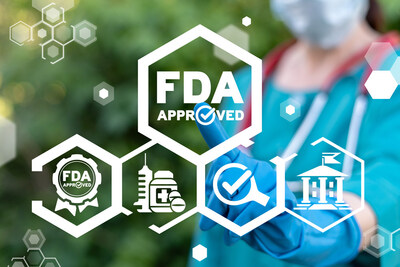According to Pharmaceutical Scientist, Inc., biosimilars are copies of biological drugs introduced after the expiry of the patents or exclusivity of new biological drugs as a more affordable choice for patients.
|
CHICAGO, June 24, 2024 /PRNewswire/ -- According to Pharmaceutical Scientist, Inc., biosimilars are copies of biological drugs introduced after the expiry of the patents or exclusivity of new biological drugs as a more affordable choice for patients. In the US, the legislation has also created an interchangeable class of biosimilars that requires extensive clinical efficacy testing, and the first interchangeable product gets one year of exclusivity. Developers have used the interchangeable status to claim the superiority of their product despite the FDA warnings in a new guideline1 that ensures that both classes of biosimilars are equally safe and effective. More significant is the concern that the additional studies are redundant and tantamount to human abuse, as proven by Professor Niazi2 and later confirmed in the studies conducted by the FDA3. But the FDA does not have the right to remove the interchangeable status, so Professor Niazi, who has been advising the FDA for many years,4 filed a Citizen Petition in 20235 advising the FDA how to go around this problem by allowing interchangeability without requiring additional studies, a decision that the FDA has the right to make, and do it until the US Senate votes on a pending bill presented by Senator Lee, with advice from Professor Niazi, to remove the interchangeable status.6 The FDA accepted Professor Niazi's advice and issued a guideline on 20th June 2024,7 allowing developers to claim interchangeability by presenting an argument that the data presented is sufficient to receive interchangeable status; the FDA has that right, but the developer must assert this. Also, the first filer will get 12 months of exclusive interchangeability, which should encourage the entry of many new biosimilar products. This is the second change to the regulations of biosimilar approval; the first change, the FDA Modernization Act 2 enacted in 2022, was also based on Professor Niazi's publications in the Science magazine8 asserting that animal toxicology testing in animals is useless and can be detrimental to the safety evaluation of biosimilars. Professor Niazi is now anticipating a third change, wherein the FDA will remove efficacy testing altogether based on the robustness of analytical and clinical pharmacology testing, which is more sensitive than efficacy testing9 that is now considered by the European Medicines Agency and allowed by the UK's Medicines and Healthcare products Regulatory Agency; while the FDA also agrees, interference by the big pharma has held it back since this will reduce the development cost of biosimilars to allow entry of smaller companies and eventually remove big pharma competing in the field of biosimilars. This will, however, be the best solution, as promoted by Professor Niazi.10 "Regulatory agencies were unsure about the safety of biosimilars in the beginning, but now that their safety and efficacy are well established, it is time that the FDA adopt the most rational plan for their approval; removing efficacy testing will reduce the development cost by more than 80% without compromising safety, and this change will revolutionize access to biological drugs globally," stated Professor Niazi, in the letter he sent to Dr. Sarah Yim of the FDA who oversees the biosimilars program at the FDA, thanking her for accepting his recommendations. Professor Niazi is an adjunct professor at the College of Pharmacy, University of Illinois, and a consultant to regulatory agencies and developers. For more information, please write to reg@pharmsci.com 2 Niazi SK. No two classes of biosimilars: Urgent advice to the US Congress and the FDA. J Clin Pharm Ther. 2022 Sep;47(9):1352-1361. 3 Herndon, TM, et al., 2023, Safety Outcomes When Switching Between Biosimilars and Reference Biologics: A Systematic Review and Meta-Analysis, PLoS ONE, 18(10):e0292231; Kurki, P, et al., Safety, Immunogenicity and Interchangeability of Biosimilar Monoclonal Antibodies and Fusion Proteins: A Regulatory Perspective, Drugs, 81(16):1881–1896; Kurki, P, et al., 2017, Interchangeability of Biosimilars: A European Perspective, BioDrugs, 31(2):83-91. 4 https://www.regulations.gov/search?agencyIds=FDA&filter=niazi 5 https://www.regulations.gov/document/FDA-2023-P-3766-0001 6 https://www.lee.senate.gov/2023/7/lee-seeks-increased-competition-in-biological-drug-market 8 Niazi SK. End animal testing for biosimilar approval. Science. 2022 Jul 8;377(6602):162-163. 9 Niazi S. Scientific Rationale for Waiving Clinical Efficacy Testing of Biosimilars. Drug Des Devel Ther. 2022 Aug 24;16:2803-2815 10 Niazi SK. Biosimilars Adoption: Recognizing and Removing the RoadBlocks. Clinicoecon Outcomes Res. 2023 Apr 12;15:281-294.
SOURCE Pharmaceutical Scientist, Inc. |





